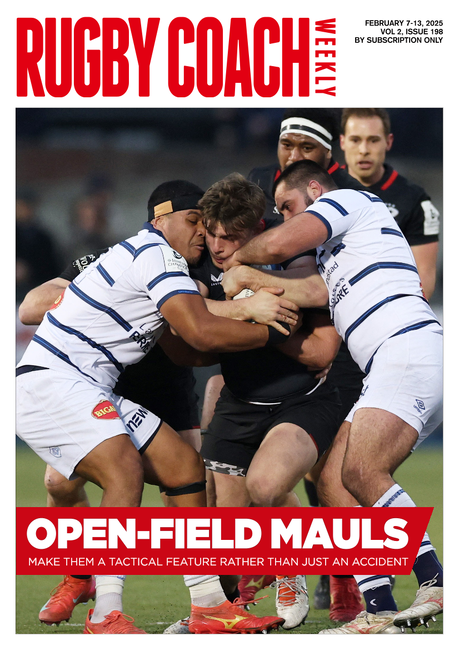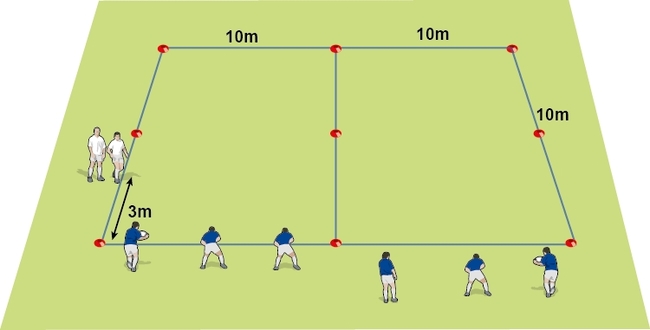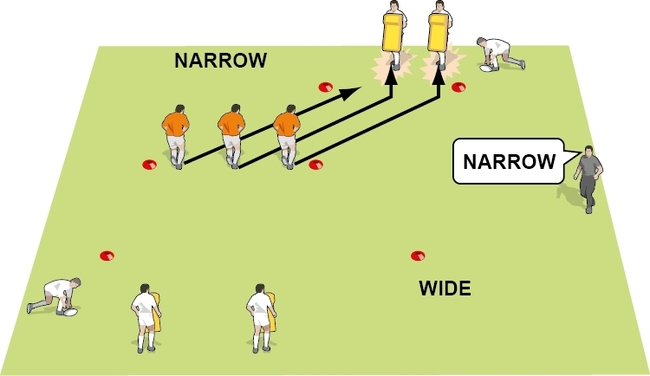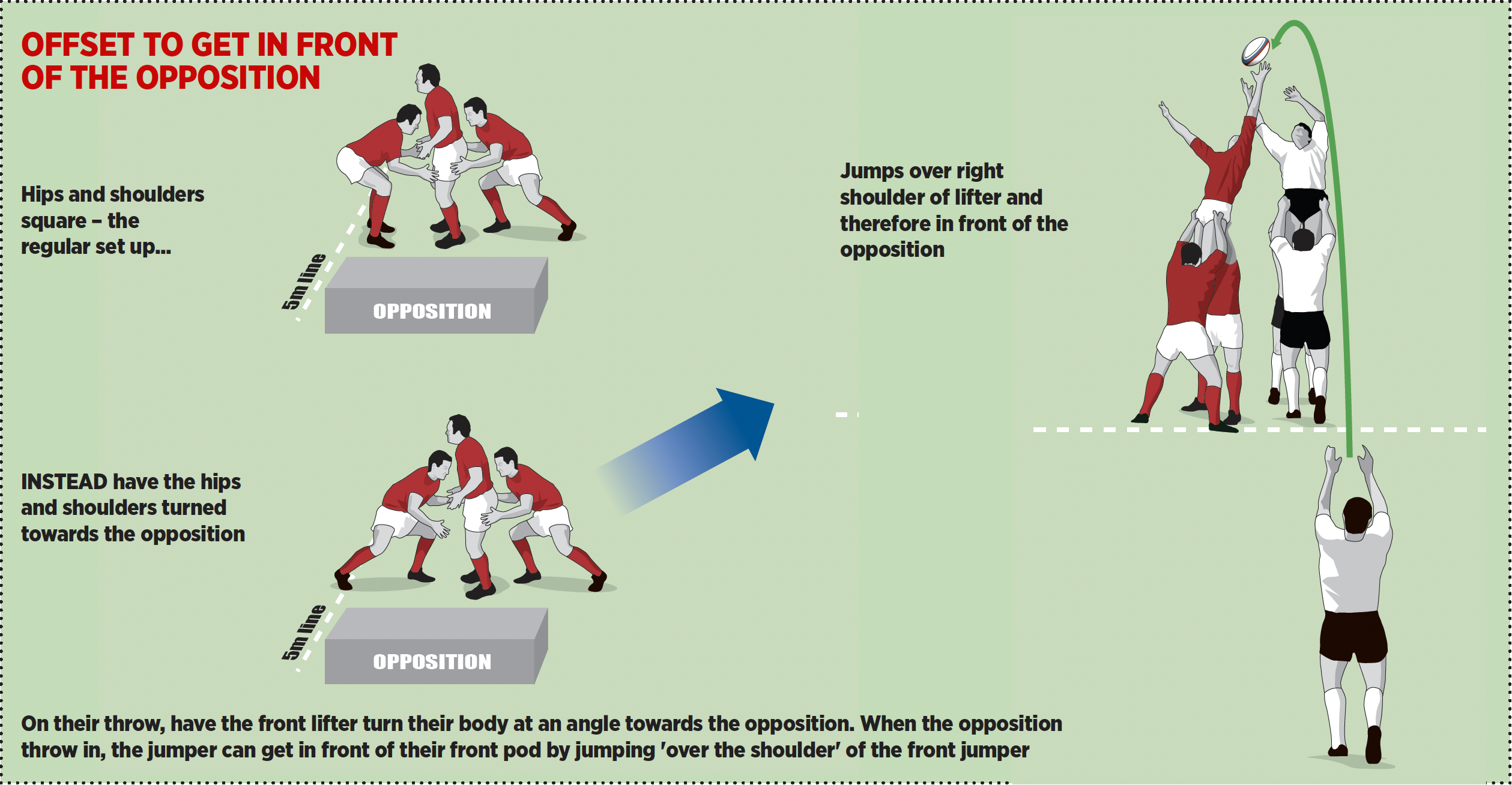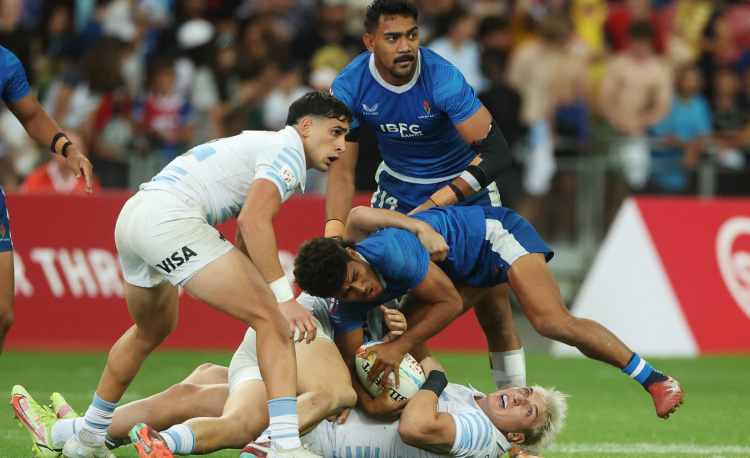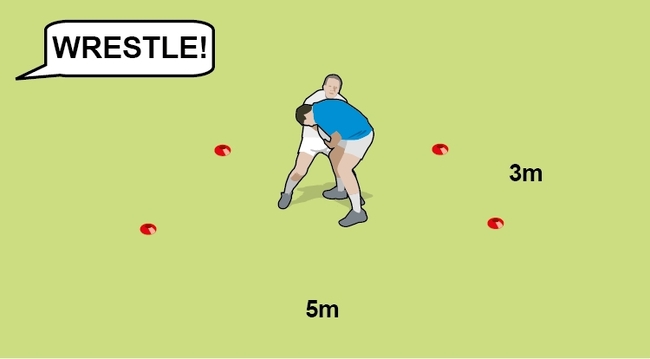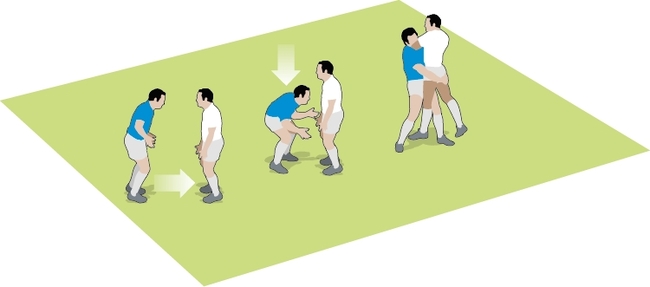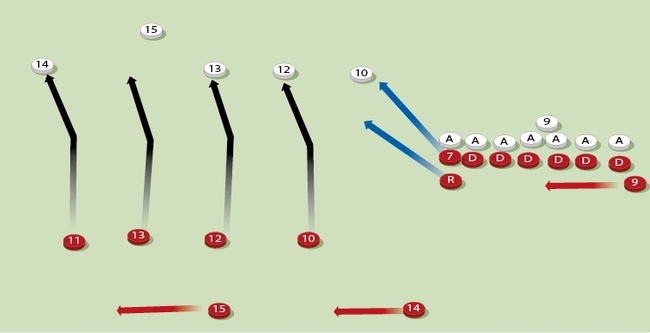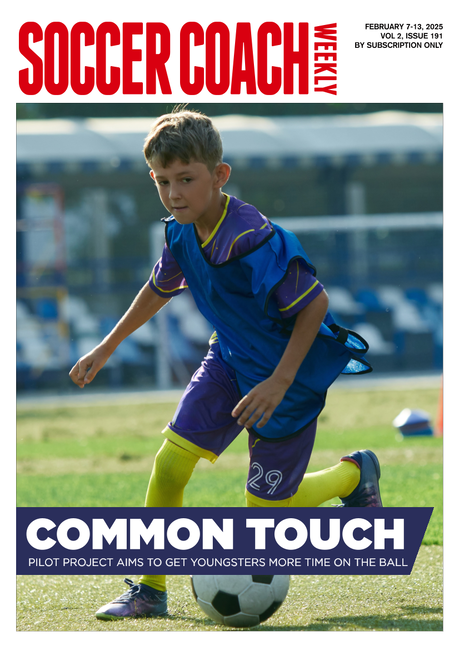Keeping defence up-to-date
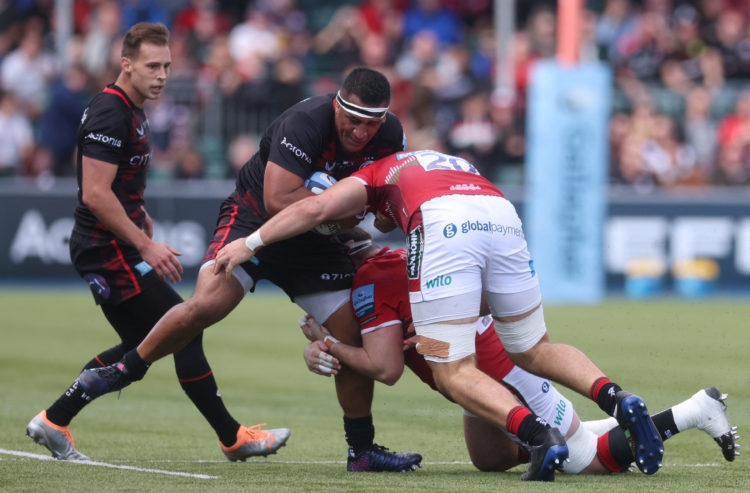
Katleho Lynch coaches Springbok Schools U18s defence as well as being a director of rugby at a top South African school. He shares some of his latest thoughts around coaching defence.
WINNING THE COLLISION CONTEST AT THE RIGHT HEIGHT
Rugby is a game of physicality, and when the attack is coached well, it can really make it hard to defend against because they are getting you behind the gain line.
A defence coach looks to counter this with dominant tackles. Coach players to use their feet and get square and front-on so they can dominate the collision and make those dominant tackles.
But there’s a danger that, to generate the power and unbalance the ball carrier, the tackler goes too high.
We can improve players' technique by breaking down this tackle to focus on body height. You need to constantly use drills where players are adjusting their body height before contact and not going high.
An example might be using specific 1 v 1 drills where the key factors are checking body height, checking the target and eyes up.
MISSED TACKLES NOT ALWAYS BAD
Players often miss tackles because they over-track, have incorrect technique, lack confidence in their technique or fear the contact situations.
Over-tracking is where, as the ball is passed along the attacking line, the defender moves laterally too quickly as they cover the next attacker. The ball carrier steps inside.
But missed tackles aren’t always a good indicator of a poor defence. If there is a good connection in the defence, then, if a player misses a tackle, another player might be in a position to make that tackle.
Especially if you are positive in defence, and move forward quickly, there is a risk and reward. Quickly up and your team put pressure on the attack. However, at speed, the defenders are more likely to be stepped, or the technique, under more pressure, isn’t quite good enough.
Yet, if you have good defensive integrity, another player will make the tackle, though perhaps not as far forward as you wanted. Missed tackles are not always bad, as long as you have the cover.
ONLY 15 MINUTES A WEEK ON DEFENCE
Defence coaches have such limited time when they are on the field.
I focus five minutes on the tackle system and 10 minutes on team defence from different scenarios. If you have a strength and conditioning coach that is willing to adapt the warm-up, you can also do some defence-orientated drills in the warm-up to cover for your limited time.
Examples of a tackle system would be starting with some 1 v 1 drills then move on to 3 v 1, progressing to 3 v 2 and lastly, 3 v 3 drills.
An example of team defence from a scenario might be defending a blindside in our 22m or two phases of defence from a lineout.
DIFFERENT SYSTEMS INTO YOUR SYSTEM
When you are working with experienced players for the first time, they might be used to playing different systems. Unless you understand your own system and why it works, there will be confusing and suboptimal outcomes. Showing some clips of how it works and why it works normally gets the players to buy in.
The higher up they play, the more players will have to adapt as coaches have different philosophies. An open mindset is key for players to adapt to different coaches' styles and systems. If a player wants to succeed at the top, they must be prepared to adjust.
I have a few systems. Sometimes a system won’t work because the player profile does not suit the system. In this case, it’s me who needs to adapt.
DON'T FORGET THE KEY DEFENCE COMPONENTS
There is a tendency for coaches to focus too much on the tackle system and forget that there are key components of defence that will make your defence successful.
So, there are a lot of aspects that need to be covered over and above tackle technique. You need to allocate time to the tackle system and then coaching decision-making.
Defence is a key component of your team and its success. I take massive pride in ensuring I have given my players clarity. Having clarity builds confidence.
Related Files
Newsletter Sign Up
Coaches Testimonials

Gerald Kearney, Downtown Las Vegas Soccer Club

Paul Butler, Florida, USA

Rick Shields, Springboro, USA

Tony Green, Pierrefonds Titans, Quebec, Canada
Subscribe Today
Be a more effective, more successful rugby coach
In a recent survey 89% of subscribers said Rugby Coach Weekly makes them more confident, 91% said Rugby Coach Weekly makes them a more effective coach and 93% said Rugby Coach Weekly makes them more inspired.
Get Weekly Inspiration
All the latest techniques and approaches
Rugby Coach Weekly offers proven and easy to use rugby drills, coaching sessions, practice plans, small-sided games, warm-ups, training tips and advice.
We've been at the cutting edge of rugby coaching since we launched in 2005, creating resources for the grassroots youth coach, following best practice from around the world and insights from the professional game.


